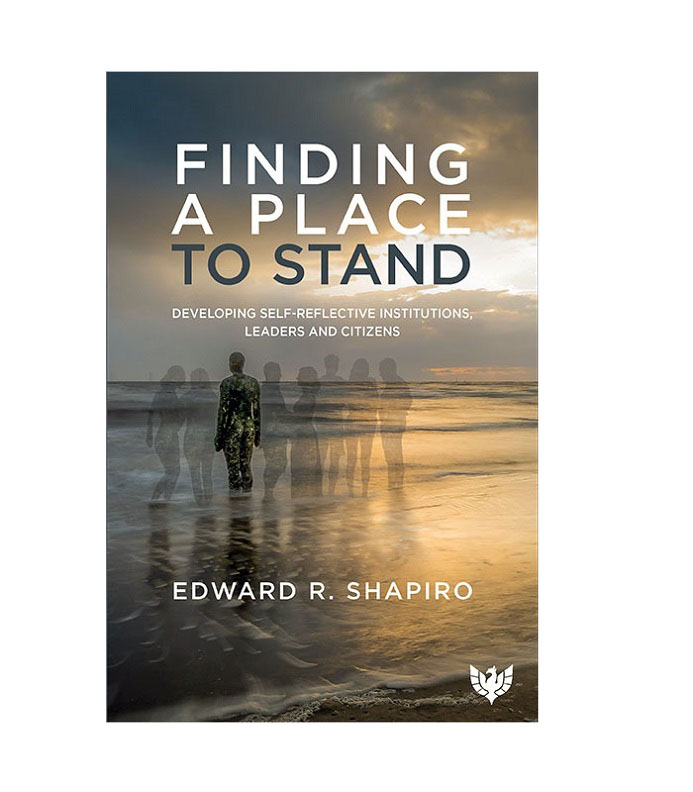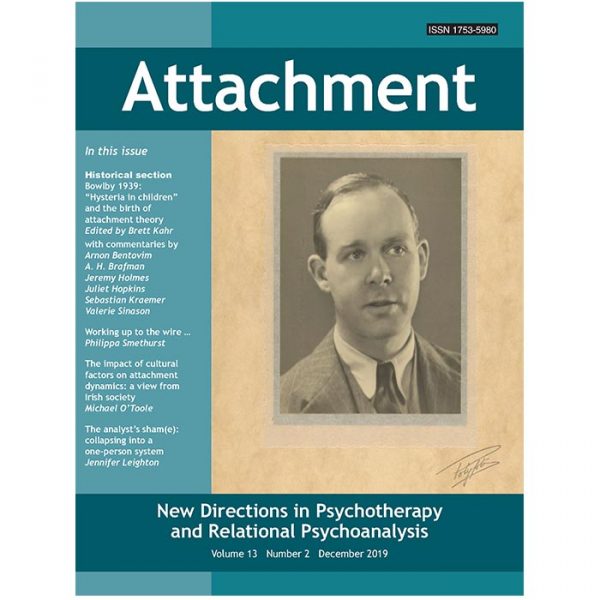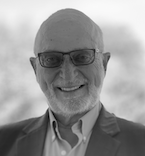What stands between us and authoritarianism seems increasingly fragile. Democratic practices are under attack by foreign intrusion into elections; voter suppression restricts citizen participation. Nations are turning to autocratic leaders in the face of rapid social change. Democratic values and open society can only be preserved if citizens can discover and claim their voices. We access society through our organisations, yet the collective voices and irrationalities of these organisations do not currently offer clear pathways for individuals to locate themselves. How can we move through the mounting chaos of our social systems, through our multiple roles in groups and institutions, to find a voice that matters? What kind of perspective will allow institutional leaders to facilitate the discovery of active citizenship and support engagement?
This book draws on psychodynamic systems thinking to offer a new understanding of the journey from being an individual to joining society as a citizen. With detailed stories, the steps – and the conscious and unconscious linkages – from being a family member, to entering outside groups, to taking up and making sense of institutional roles, illuminate the process of claiming the citizen role. With the help of leaders who recognise and utilise the dynamics of social systems, there may be hope for us as citizens to use our institutional experiences to discover a place to stand.





 Edward R. Shapiro, MD, was the Medical Director/CEO of the Austen Riggs Center from 1991 to 2011. A board-certified psychiatrist, psychoanalyst, family researcher, and organisational consultant, he is also Clinical Professor of Psychiatry at Yale University School of Medicine and Principal of the Boswell Group. A founding member of the Psychoanalytic Society and Institute of the Berkshires, Dr Shapiro is a training and supervising analyst. An organisational consultant for over thirty-five years, Dr Shapiro has consulted with hospitals, mental health clinics, law firms, and family businesses. He has published over fifty articles and book chapters on human and organisational development, family functioning, and personality disorders, presenting papers in this country and abroad. His book (with A. W. Carr), Lost in Familiar Places: Creating New Connections between the Individual and Society, was published by Yale University Press as was his edited book, The Inner World in the Outer World. A Distinguished Life Fellow of the American Psychiatric Association, he is also a fellow of the A. K. Rice Institute and the American College of Psychoanalysis. Dr Shapiro has received the Felix and Helene Deutsch Scientific Award from the Boston Psychoanalytic Society, the Research Prize from the Society for Family Therapy and Research, and the Philip Isenberg Teaching Award from McLean Hospital. In 2007, he was named Outstanding Psychiatrist for Advancement of the Profession by the Massachusetts Psychiatric Association and since 2011 has been on US News & World Report’s list of “Top Doctors”.
Edward R. Shapiro, MD, was the Medical Director/CEO of the Austen Riggs Center from 1991 to 2011. A board-certified psychiatrist, psychoanalyst, family researcher, and organisational consultant, he is also Clinical Professor of Psychiatry at Yale University School of Medicine and Principal of the Boswell Group. A founding member of the Psychoanalytic Society and Institute of the Berkshires, Dr Shapiro is a training and supervising analyst. An organisational consultant for over thirty-five years, Dr Shapiro has consulted with hospitals, mental health clinics, law firms, and family businesses. He has published over fifty articles and book chapters on human and organisational development, family functioning, and personality disorders, presenting papers in this country and abroad. His book (with A. W. Carr), Lost in Familiar Places: Creating New Connections between the Individual and Society, was published by Yale University Press as was his edited book, The Inner World in the Outer World. A Distinguished Life Fellow of the American Psychiatric Association, he is also a fellow of the A. K. Rice Institute and the American College of Psychoanalysis. Dr Shapiro has received the Felix and Helene Deutsch Scientific Award from the Boston Psychoanalytic Society, the Research Prize from the Society for Family Therapy and Research, and the Philip Isenberg Teaching Award from McLean Hospital. In 2007, he was named Outstanding Psychiatrist for Advancement of the Profession by the Massachusetts Psychiatric Association and since 2011 has been on US News & World Report’s list of “Top Doctors”.
Admiral James Stavridis, USN (Ret); Supreme Allied Commander at NATO (2009–2013); Dean, The Fletcher School of Law and Diplomacy, Tufts University (2013–2018) –
This is a brilliantly realized treatment of what it means to be a citizen, and how we find our way there through the deeply personal psychological voyage we all must sail. “Finding a Place to Stand” uses cutting-edge behavioral science, clear and cogent story-telling, and a deep understanding of the human condition to create a book that should be on every citizen’s nightstand.
David Armstrong, Associate Consultant, Tavistock Consulting, London –
This is a book about close listening to and learning from experience, within and across the social frames in which we live, grow, work, and relate. At one level, it tells the story of one individual’s own journey of discovery, as a psychiatrist keenly attuned to the social contexts in which he practices and leads. At another, it is a powerful exploration of the conscious and unconscious processes involved in finding and enabling others to find one’s own voice, as an “internal citizen,” in a family, a group, an organization, and a nation. Hugely ambitious, wonderfully accessible, its publication could scarcely be more timely.
Adrienne Harris, psychoanalyst, New York University, NYU Postdoctoral Program in Psychotherapy and Psychoanalysis –
Taking off from the now familiar idea of studying “the individual in context,” Dr. Shapiro brilliantly extends this concept from the parent–child matrix, to the couple, the developing family, the group – a social or work entity – and onto the larger collectives of institutions and political cultures. The trajectory of this book also covers the four decades of Shapiro’s work experiences: in individual treatment, in hospital administration, in group dynamics, and in the study of group relations. It is an amazing ride. He is educating us so carefully in the ways that unconscious forces, splitting, and conflict, at every level of social organization, impede and shape our individual and social capacities. Read this book as an individual, as a practitioner, but, above all, as a citizen. A fascinating, containing guide in turbulent times.
John Shattuck, Professor of Practice in Diplomacy, The Fletcher School of Law and Diplomacy; U.S. Assistant Secretary of State for Democracy, Human Rights and Labor (1993–1998); U.S. Ambassador to the Czech Republic (1998–2000) –
“Finding a Place to Stand” is a psycho–socio–political tour de force – carefully, steadily, and powerfully building the case for conscious integration of our multiple human identities so that we can learn to coexist and participate as citizens in an increasingly complex and disruptive world. Dr. Shapiro draws deeply and effectively on his experiences, both as a psychiatrist and as a manager–leader, to set the stage for his exploration of the divisions in our society and his search for citizens who can bridge the divides.
5-star Amazon review from “nosoapplease” –
This book is a must read for anyone struggling to figure out how to be a citizen in today’s polarized and polarizing world. Dr. Shapiro draws on decades as a practicing psychiatrist and educator, as well as a lifetime of studying the exercise of leadership and authority, to offer a novel way of understanding issues that arise in all social organizations.
In an age when many can articulate the issues but few offer solutions, Dr. Shapiro provides not only a way to understand many of the seemingly intractable conflicts of our time, but also a way to begin to address them. This book is a beacon for all of us trying to find a way to take up our authority and use our own experience to effect changes in our environments, both immediate and beyond.
5-star Amazon review from Stephen Taylor, M. D. –
An important and deep look at how we take up roles and membership in groups.
Dr. Shapiro’s timely book takes a courageous, unblinking look at our ways of becoming members in groups and taking up our roles as citizens. This book is a vital antidote against the current of fear, anxiety and paralysis that is prone to sweep us away in the political and social landscape of today.
5-star Amazon review from Aaron J. Nurick –
This book is a wonderfully engaging and deeply thoughtful personal exploration that enhances our understanding of how we find our place in families, groups, organizations, and society. Based on the solid foundation of systems psychodynamic theories brought to the reader with great clarity and energy, Ed Shapiro invites us to join in his thinking about his own experiences with patients, colleagues, and as a member of multiple and interconnected organizations. Shapiro teaches us how to discover when and how others “may be right” in relation to our connection to “the task” and broader context, clearly a prime challenge in our highly polarized and increasingly tribal cultures. Part memoir, part instructive essay, the book reveals the author as a master thinker, listener, and storyteller who enables us to find our own places to stand.
Kirkus Reviews (Starred review) –
‘An in-depth examination of the ‘psychology of citizenship’. Shapiro addresses a subject that has vast implications for individuals and organizational leaders… He methodically analyzes human connections in the broadest sense of the word …[and] explores the complex psychological dynamics of individuals, families, groups, and organizations in lucid writing free of medical and scientific jargon. Throughout, Shapiro cites pertinent examples and includes anecdotes, each of which aptly illustrates a key point. These stories, whether they are about individuals in families, patients in hospitals, or employees in companies, all serve to enrich the theories presented. An observant, discerning work on understanding and improving organizations.’
Susan Long, ‘Organisational & Social Dynamics’ 22(2) (2022) –
‘It is a far-reaching book in terms of the expressed desire to help bring about greater participatory democracy. It is a helpful book through its illustration of how to do this at many levels—in the family, in organisations, and in society. In many places it redefines how we think about issues such as mental health, maturity, leadership, and citizenship. […] I am grateful for the accessibility of the writing and the storytelling that brings it alive. I am grateful for the clear enunciation of ideas […] This is an important read. It brings forward the ways in which self-reflective practice, in taking up a place for one’s voice, listening to others, and finding important commonalities can lead to a true democracy.’
Brian W. Flynn, Psychiatry, Feb 2024 –
‘Shapiro’s goal is both noble and formidable — to enhance the development of active citizens in order to shape institutions in the direction of shared goals and participation and away from chaos and authoritarianism. […] The basic tone and voice of the book is reflective of the author’s acknowledged and firm psychoanalytic grounding. This is a book that is designed to promote insight (not unlike psychoanalysis). This is not a how-to book. It does a masterful job in presenting rich material in a way that promotes understanding of, and relationships among, seeming disconnected elements. It connects the dots. It provides guidance on what can and needs to be done. […] There remains much to be learned from his perspective, conceptualization of issues, as well as his vast and diverse experience.’